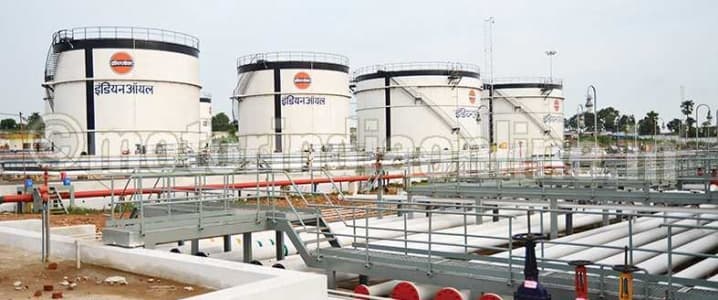One of the world’s largest crude oil importers, India, has benefited from low oil prices for the better part of the past three years, enjoying a lower import bill and improving its trade balance and current accounts.
However, the oil price rally in recent months is now posing a new dilemma for India’s government — whether to reverse energy policies on fuel prices to quell consumer backlash over rising gas and diesel prices ahead of a string of regional elections this year and a federal election next year.
Over the past six months, Brent Crude prices have risen by some 31 percent, and the Dubai and Oman prices — used to price Middle Eastern crude oil exports to Asia — are above $66 a barrel. India imports 82.1 percent of the oil it consumes, and its biggest trade partner in energy imports is OPEC — some 85 percent of crude oil imports and 94 percent of gas imports come from OPEC member states.
India’s import bill for the crude oil it is buying is rising, denting government trade and current accounts. The value of India’s crude oil imports in December 2017 was 34.94 percent higher than the value of oil imports for the same month in 2016, official trade figures show. India paid 24.18 percent more for oil in April to December 2017 compared to the same period the previous year.
The rising oil prices are now threatening to unravel one of the key reforms of Indian Prime Minister Narendra Modi — the removal of caps on fuel prices introduced in 2014. Related: 2018: The Year Of The Oil Majors
As consumers have started to feel the pinch of higher gasoline and diesel prices, some analysts believe that there is little room for further increases without stirring public dissent, and that the government could return to cap fuel prices.
“Crude’s rally may force the Indian government to choose between cutting excise duty on petroleum products or reintroducing fuel-price caps to control inflation,” Bloomberg Intelligence analysts Kunal Agrawal and Kar Wai Lee said in a note early this week. “Reducing duty would impact state finances, while price caps would dent state refiners’ revenue,” the analysts noted.
On February 1, gasoline prices in Delhi hit their highest level in three and a half years.
The oil price gains “straight away feed into the inflation, and retail prices of petrol and diesel would become a political issue as consumers will start complaining and there’ll be pressure on government to do something,” Sunil Kumar Sinha, principal economist at Fitch Group’s India Ratings & Research, told Nikkei Asian Review.
According to Vaibhav Chowdhry, an analyst at KR Choksey Shares & Securities Pvt. in Mumbai, the government might re-introduce the fuel price caps. Related: 2018: The Year Of The Oil Majors
“On the global front, crude prices are rising, but I don’t expect much increase in India’s retail prices for gasoline and diesel,” Chowdhry told Bloomberg.
Prime Minister Modi will seek re-election in 2019, and the oil price rally is putting his energy and economic policies to one of the toughest tests yet.
Appealing to consumers (read: voters) and preventing a populist opposition surge could either hurt the country’s finances if excise duty is cut, or eat into the revenues of the large state-held refiners if the government backtracks on its policy on fuel prices and reverts to capping them again.
ADVERTISEMENT
By Tsvetana Paraskova for Oilprice.com
More Top Reads From Oilprice.com:
- The Biggest Threat To U.S. Oil Exports
- JP Morgan: Oil Could Hit $78 Within Months
- Three Factors That Could End The Oil Rally


















